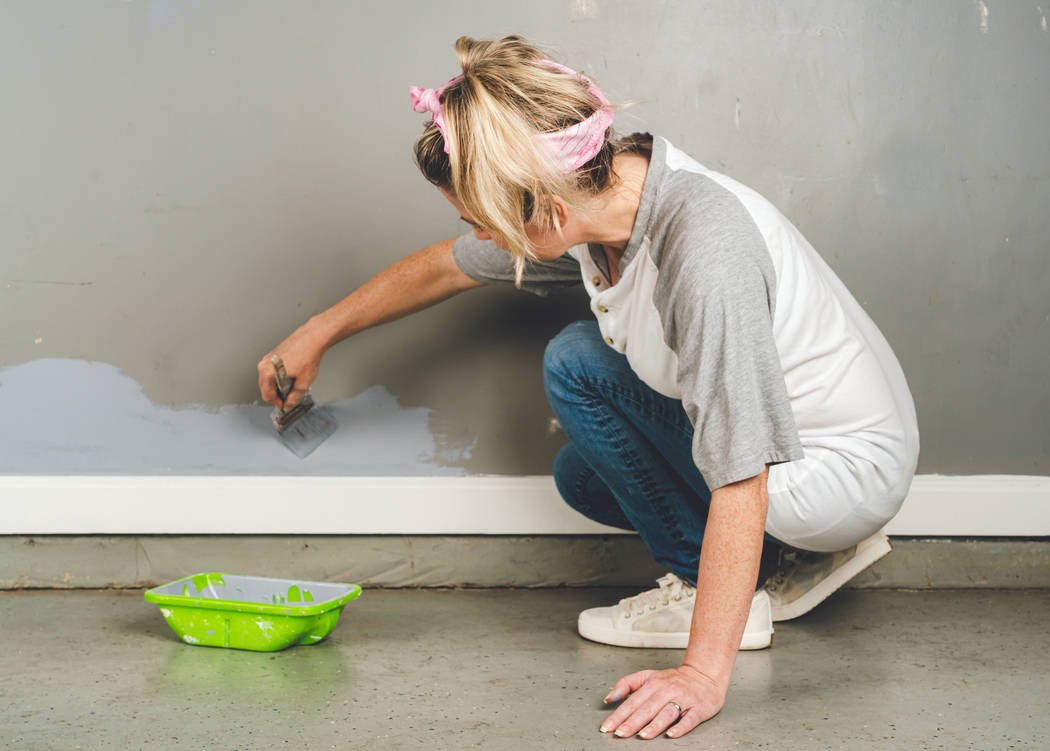Steady hand, quality paintbrush produce flawless results
Q: We are repainting a large bedroom and have finished everything but the trim. The paint on the walls and trim is latex. We want the trim to look great because it is a different color than the walls. I have seen where professional painters leave a flawless finish without any brush marks. We don’t have a paint sprayer. Is there a way that we can paint the trim so that there are no brush marks?
A: You don’t need an airless sprayer for flawless results. All you need is a steady hand, a quality brush and patience.
You get brush marks on a paint job for a couple of reasons. Latex paint dries fairly quickly, and if you are brushing it on — as opposed to spraying — the brush marks might dry before the paint has time to lay down.
You can extend the drying time by using a paint conditioner called Floetrol. You can buy it at any home center or paint store for about $10 per quart. Follow the directions on the label for the proper amount to add.
Don’t add it directly to your gallon bucket. Use a separate bucket — called a “cut” bucket — to mix a small amount of paint and Floetrol. Something around the size of a coffee can works well. You want to have at least 2 inches of the paint mixture in the bottom of the can.
Before you start slapping paint on the trim though, there is a little preparation.
A must for getting a clean cut-in line (the line that separates the colors from your walls to your trim) is caulking. Lay a small bead of caulking where the trim meets the wall. Smooth it out with a wet finger and you will get a razor-sharp line. Without caulking, you will have to fight all the tiny bumps in the wall texture.
You have two choices to make straight lines: a steady hand or masking tape.
I know lots of people who use tape to make the cut-in line. The only danger is that the paint will sometimes seep under the tape and ruin the line. If that happens, you can get an artist’s paintbrush (one with about three hairs in it) and touch up the line.
If you are going to use tape, use inch-wide blue painter’s tape. It’s more expensive, about $3 per roll, but it will lift off easier with less chance of taking the paint on the wall with it. You can also lift it off and reset it, and it will still stick. Make sure that the leading edge of the tape is perfectly straight with no ripples or bubbles and that you use one continuous length.
If you stop midway down the wall and have to add another piece of tape, you will see the splice. That will be evident if the colors are contrasting.
Once the tape is down, you can start to paint the trim. Use a quality angled synthetic-bristle brush for latex and start in the corner with the latex-Floetrol mixture overlapping the tape. Pull the tape after the paint has had time to firm up but before it completely hardens. Two hours is generally a good wait time.
If you have steady nerves, you can forego the tape, but this isn’t for beginners. With the angled brush, get about 2 inches of paint on it, tap the sides of it on the inside of the cut bucket and gently scrape the excess paint off on the lip of the bucket. Take the brush and push it in the corner and steadily pull it across the edge of the trim.
Watch the bristles on the outside edge because they form the line. You might have to twist your wrist slightly to guide the brush along the caulking. As you approach the end of the trim, turn the brush over, stick it in the corner and paint in the other direction until the paint overlaps. Paint the borders of the trim first and then fill in the field.
If you are going to continue painting the next day, make sure you thoroughly clean the brush, or some of the bristles will harden and it will be like painting with a dinner fork.
Also, you can throw the brush in a freezer bag and stick it in the freezer. Just thaw it out for half an hour before you use it the next day.
Mike Klimek is a licensed contractor and owner of Las Vegas Handyman. Questions may be sent by email to handymanoflasvegas@msn.com. Or, mail to 4710 W. Dewey Drive, No. 100, Las Vegas, NV 89118. His web address is www.handymanoflasvegas.com.
Do-it-yourself
Project: Painting interior trim
Cost: Under $30
Time: 1-4 hours
Difficulty: ★★★























